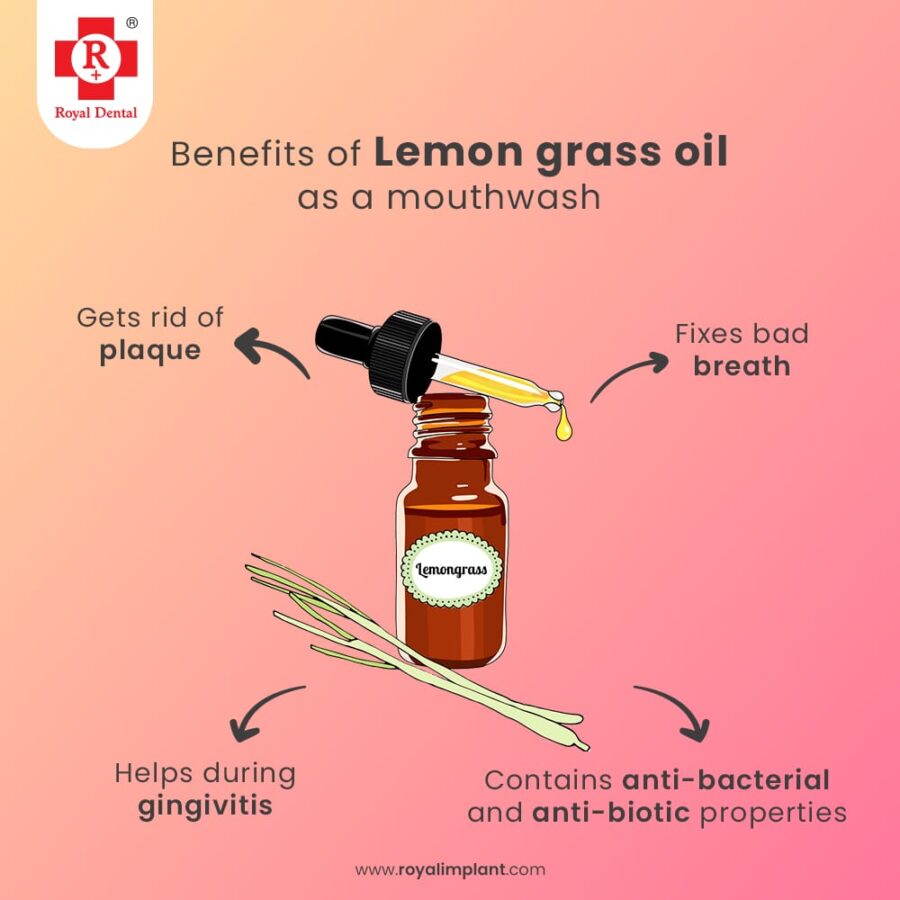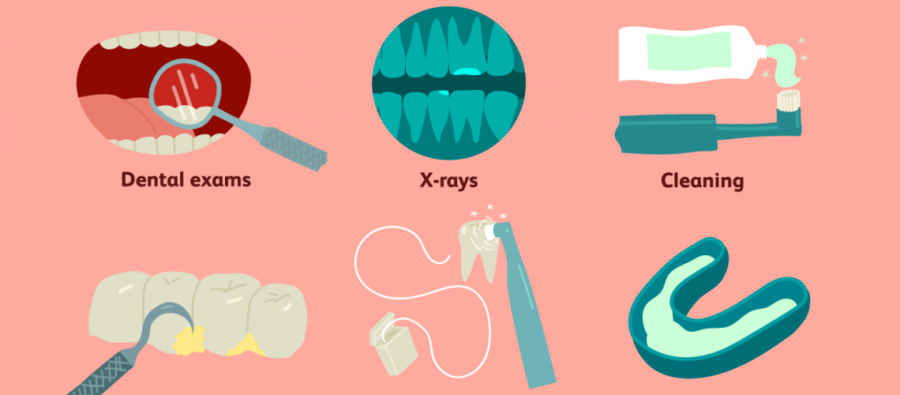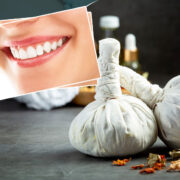Hello, readers, and thank you for your interest in this article, which will introduce you to the fascinating world of Ayurvedic approaches to dental health. In today’s fast-paced world, where modern dentistry has made remarkable advancements, it’s essential to explore the roots of ancient wisdom. Ayurveda, a holistic healthcare system originating from India, offers a treasure trove of natural remedies and practices that can enhance your oral health. Join me, Dr. Chirag Chamria of Royal Dental Clinics, as we embark on this journey to discover Ayurvedic secrets for a healthier smile.
An Ayurvedic approach to Dental Health
The ancient Indian medical system of Ayurveda considers dental health as part of a larger whole. It views the mouth as a gateway to the entire body and recognizes the interconnectedness between oral health and overall well-being. According to Ayurveda, imbalances in the three doshas – Vata, Pitta, and Kapha – can manifest as dental problems. Here, we will explore the Ayurvedic approach to dental health and how it can benefit you.
Understanding the Doshas
In Ayurveda, each person is believed to have a unique combination of the three doshas, which influence their physical and mental characteristics. Vata is associated with movement, Pitta with transformation, and Kapha with stability. Imbalances in these doshas can impact oral health. For example, excessive Vata may lead to dry mouth and increased tooth sensitivity, while aggravated Pitta can result in inflamed gums and increased acidity in the mouth. Understanding your dosha type can help tailor Ayurvedic practices to your specific needs.
Oral Care Practices
Brushing: Ayurveda recommends using a soft-bristled toothbrush and gentle, circular motions to clean the teeth and gums. Natural toothpaste or herbal tooth powders containing ingredients like neem, clove, and turmeric are often recommended for their antimicrobial and anti-inflammatory properties.
Oil Pulling: Oil pulling, as mentioned earlier, involves swishing oil in the mouth for a few minutes. It is believed to draw out toxins, reduce plaque formation, and promote gum health. Sesame oil and coconut oil are commonly used for oil pulling.
Herbal Mouthwashes: Ayurveda suggests using herbal mouthwashes made from ingredients like Triphala, licorice, and mint to freshen breath, maintain oral hygiene, and soothe oral tissues.
Diet and Nutrition
Ayurveda places great emphasis on the role of diet in maintaining overall health, including dental health. A balanced diet that supports the dosha balance is essential. Here are some dietary recommendations:
Calcium-Rich Foods: Adequate calcium is crucial for strong teeth. Ayurveda suggests consuming dairy products like milk, yogurt, and cheese, as well as sesame seeds, almonds, and leafy green vegetables for their calcium content.
Vitamin C-Rich Foods: Foods rich in vitamin C, such as citrus fruits, berries, and bell peppers, help maintain healthy gums and prevent gum disease.
Avoiding Excessive Sugar: Excessive sugar consumption can contribute to tooth decay and cavities. Ayurveda advises limiting the intake of sugary foods and drinks, and opting for natural sweeteners like honey or jaggery when needed.

Ayurvedic Herbs and Remedies
Ayurveda incorporates the use of various herbs and remedies for maintaining dental health. Some commonly used herbs include:
Neem: Neem has strong antimicrobial properties and is beneficial for gum health. Chewing on neem twigs or using neem-based toothpaste can help prevent gum disease.
Triphala: Triphala, a combination of three fruits, is often used in Ayurveda for its cleansing and astringent properties. It can be used as a mouthwash or added to toothpaste for its oral health benefits.
Clove: Clove has analgesic and antimicrobial properties. Applying clove oil to a toothache or using it as a part of herbal toothpaste can provide relief.
Oil Pulling for Oral Detoxification
Oil pulling, also known as “Kavala” or “Gandusha,” is an ancient Ayurvedic technique used for oral detoxification and maintaining oral health. This practice involves swishing a tablespoon of edible oil in the mouth for about 15-20 minutes and then spitting it out. While it may sound simple, oil pulling offers numerous benefits for oral hygiene. Let’s explore the process in more detail.
Process of Oil Pulling
Choose an Edible Oil: Traditionally, sesame oil was used for oil pulling in Ayurveda. However, you can also use other edible oils such as coconut oil, sunflower oil, or olive oil. Opt for cold-pressed, organic oils for the best results.
Begin on an Empty Stomach: Oil pulling is typically done in the morning on an empty stomach. Before brushing your teeth, take a tablespoon of the chosen oil into your mouth.
Swish the Oil: Gently swish the oil around your mouth, pulling it through your teeth and across your gums. Move it around your entire oral cavity, ensuring that the oil reaches every corner. Avoid gargling or swallowing the oil.

Continue for 15-20 Minutes: Maintain the swishing motion for about 15-20 minutes. Initially, you may find it challenging to swish for this duration, so start with a shorter time and gradually increase it as you become more comfortable.
Spit Out the Oil: After 15-20 minutes, spit out the oil into a trash can. Avoid spitting it into the sink, as the oil can solidify and potentially clog the drain.
Rinse and Brush: Rinse your mouth thoroughly with warm water to remove any remaining oil. Follow up with brushing your teeth using a natural toothpaste or herbal tooth powder.
Incorporating Oil Pulling into Your Routine
Choose the Right Oil: Select an oil that suits your preferences and needs. Sesame oil is a traditional choice, while coconut oil offers a pleasant taste and additional antimicrobial properties.
Be Consistent: For optimal results, practice oil pulling regularly. Aim for at least three to four times a week, if not daily. Consistency is key to reaping the long-term benefits of this technique.
Start Slowly: If you’re new to oil pulling, begin with shorter durations, such as 5-10 minutes, and gradually increase the time as you become comfortable. It may take some practice to build up to the recommended 15-20 minutes.
Maintain Oral Hygiene: While oil pulling is beneficial, it should not replace your regular oral hygiene routine. Continue brushing your teeth, flossing, and visiting your dentist for professional cleanings and check-ups.
Seek Professional Advice: If you have specific oral health concerns or conditions, consult with a dentist, such as myself, Dr. Chirag Chamria of Royal Dental Clinics. A dental professional can provide personalized guidance and ensure that oil pulling complements your overall oral care.
Tongue Cleaning for Oral Hygiene
Tongue cleaning is an important aspect of oral hygiene that is often overlooked. The tongue harbors bacteria, food particles, and dead cells, which can contribute to bad breath, plaque formation, and oral health problems. Using a tongue cleaner or a toothbrush, gently scrape the surface of the tongue from back to front to remove these deposits. Tongue cleaning not only helps freshen breath but also promotes overall oral hygiene by reducing the bacterial load in the mouth. Incorporating this simple practice into your daily oral care routine can make a significant difference in maintaining a clean and healthy mouth.
Herbal Tooth Powders and Natural Toothpaste
In the realm of Ayurveda, herbal tooth powders and natural toothpaste offer an alternative approach to oral care. These products harness the power of natural ingredients to promote oral health while avoiding potentially harmful chemicals found in commercial toothpaste. Let’s explore the ingredients commonly found in herbal tooth powders and natural toothpaste.
Common Ingredients in Herbal Tooth Powders and Natural Toothpaste
Neem: Neem has antimicrobial properties and is often used in Ayurveda for oral care. It helps combat bacteria, reduces plaque formation, and promotes gum health.
Clove: Clove possesses analgesic and antimicrobial properties. It can help alleviate toothache, freshen breath, and support oral health.
Turmeric: Turmeric is known for its anti-inflammatory and antimicrobial properties. It can help reduce gum inflammation, fight bacteria, and promote a healthy oral environment.

Licorice: Licorice has anti-inflammatory and antimicrobial properties. It can help soothe oral tissues, combat bacteria, and support gum health.
Triphala: Triphala, a combination of three fruits (amla, haritaki, and bibhitaki), is commonly used in herbal tooth powders. It possesses cleansing, astringent, and antimicrobial properties, promoting oral health and hygiene.
Mint: Mint leaves or mint oil are often used for their refreshing taste and ability to combat bad breath. Mint also provides a cooling sensation and a feeling of freshness.
Usage and Application
- Dampen your toothbrush with water.
- Apply a small amount of herbal tooth powder or natural toothpaste onto the brush.
- Brush your teeth thoroughly for about two minutes, focusing on all surfaces of your teeth and along the gumline.
- Rinse your mouth thoroughly with water after brushing.
- Use these products as a part of your regular oral care routine, ideally twice a day.
Consultation and Considerations
While herbal tooth powders and natural toothpaste can be beneficial for maintaining dental health, it’s important to consult with a dental professional like myself, Dr. Chirag Chamria, to ensure that these products suit your specific needs and dental condition. A dentist can provide personalized advice and address any concerns you may have.
Stress Reduction and Oral Health
Stress reduction plays a crucial role in maintaining optimal oral health. High levels of stress can have a negative impact on oral hygiene habits and contribute to conditions such as teeth grinding, jaw clenching, canker sores, and gum disease. Stress can also weaken the immune system, making it more difficult for the body to fight off oral infections. Engaging in stress-reducing activities such as exercise, meditation, deep breathing, and maintaining a balanced lifestyle can help minimize the effects of stress on oral health. By managing stress effectively, individuals can improve their overall well-being and promote better oral health.
Conclusion
As we conclude this exploration into Ayurvedic techniques for maintaining dental health, it’s evident that this ancient system offers invaluable insights and practices. By incorporating Ayurvedic principles into your oral care routine, you can embrace a more holistic approach to dental health. Remember, while Ayurveda provides valuable guidance, it’s crucial to consult with a trusted dentist like myself, Dr. Chirag Chamria of Royal Dental Clinics, to ensure a comprehensive and personalized dental care plan. Let’s unlock the secrets of Ayurveda and achieve optimal dental health for a brighter, happier smile.
© All rights reserved by Royal Dental Implants Pvt Ltd
Issued in public interest






